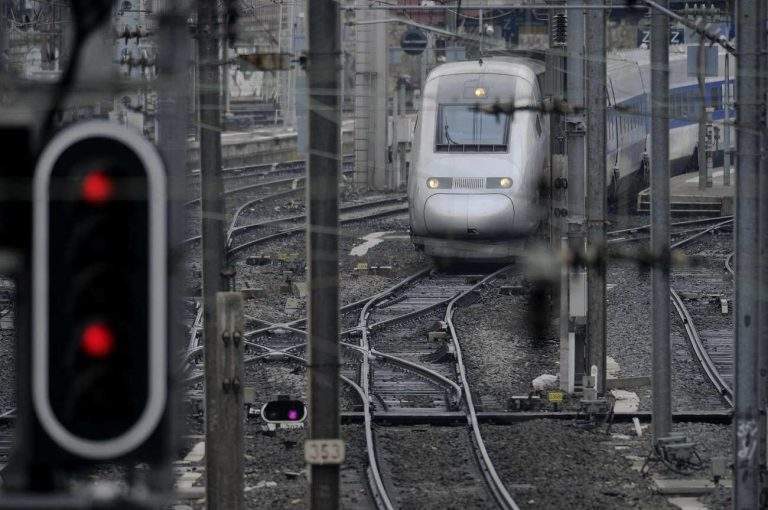Point of view. What about the government’s announcements to revive rail freight, short lines and night trains? Deciphered by the general secretary of the FIRST transport union.

By Bernard Aubin
In the midst of the pandemic, the government rightly increased its support measures for businesses in difficulty. Thus, in April, Air-France KLM obtained a 7 billion euro loan, but with a certain number of constraints: “There can be no State support, with French money, without the company’s ecological commitment”, stressed the Minister of Ecological Transition at the time. Clearly, the air carrier had to “drastically” reduce its domestic flights where a rail alternative exists.
As for the SNCF, it seemed paradoxically urgent to wait. However, the public company was also faced with a catastrophic financial situation. After a positive result in 2018, the operator posted a loss of 800 million euros in 2019 following the pension reform initiated without consultation by the government. Added to this were losses related to Covid 19, in the region of 2 billion, making a total of nearly 3 billion in all.
Alarm signal
At the beginning of May, the President of the SNCF sounded the alarm. He invited the government to come to his aid, in the same way as for Air France-KLM or Renault. The Secretary of State for Transport’s scathing reply: “As long as we do not have an extremely precise vision of the cost that the coronavirus will have borne by the SNCF, and as long as we do not know the dynamics of the takeover, in particular of the TGV offer, we do not have a sufficiently precise vision to enter into this type of discussion with the SNCF”. Close the ban!
It should be noted in passing that railway workers had also been carefully excluded from the speeches and other thanks addressed by the Head of State to the staff who had helped to maintain a minimum of activity in our country. However, 70% of national freight traffic was still insured and some staff had contributed to transporting the sick across France… Let’s move on!
Freight development
Recently, we have seen a real turnaround in the situation with an increase in “green” announcements in favour of rail. One has to wonder what kind of fly has stung this government, which until now had ignored the railways, broken up the SNCF as soon as Emmanuel Macron came to power, provoked then ignored the railway workers, and at the same time implicitly supported the road.
On 14 July, Emmanuel Macron created a surprise by announcing his desire to “massively redevelop” rail freight, night trains and short lines. This was a curious ambition on the part of a former Minister of Industry who, with his eponymous coaches, had largely contributed to the disappearance of intercity rail links! To date, the sustainability of these road lines seems to be threatened: only 2 operators remain out of the 6 initial ones, the break-even point has not yet been reached and the pandemic has not helped coach operators’ business…
Green disaster
The fine print, let’s talk about that, too. For a line to be profitable, it is essential that it be used by as many trains as possible… both freight and passenger trains. However, policies, all policies that have been pursued for a long time, have been unfavourable to rail freight. In the past, two SNCF freight directors, Francis Rol-Tanguy and then Marc Véron, had drawn conclusions from this and set up a plan to reduce the sail considerably. In 2004, the “Plan Véron” notably sealed the death of the “single wagon”, throwing thousands of tonnes of freight onto the roads. Today, grass grows in marshalling yards that have not been razed since. A real ecological disaster.
So will we really have the means, and above all the will, to develop rail freight today? And with which operator? Knowing that the SNCF, or rather the little that remains of this public company after the reform that came into force in January 2020, is hardly in a spirit of sanctity with this government. One would almost get the impression that once the SNCF is ousted from its historic network, everything becomes possible!?
Look for the mistake
The past invites us to take a step back from grandiloquent announcements. In 2007, Nicolas Sarkozy and Jean-Louis Borloo launched the “Grenelle de l’environnement” (Grenelle Environment Forum) with a great deal of publicity. One of the flagship projects was to transfer 25% of road traffic to non-polluting modes of transport by 2022… Ironically, when the Grenelle was launched, the SNCF announced almost simultaneously that nearly 200 stations would be closed to freight traffic… without the Government having any objections. Look for the error and draw up the balance sheets today!
What about the commitments voted by the Nations at COP 21, universally praised but less and less declined, when they are? All these political and ecological agitations call for the greatest mistrust! Submit

